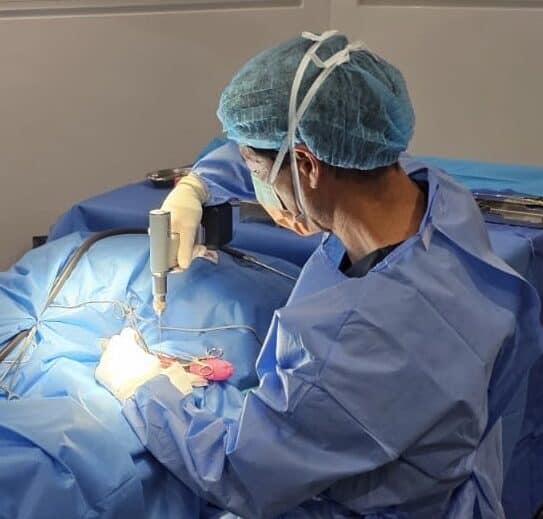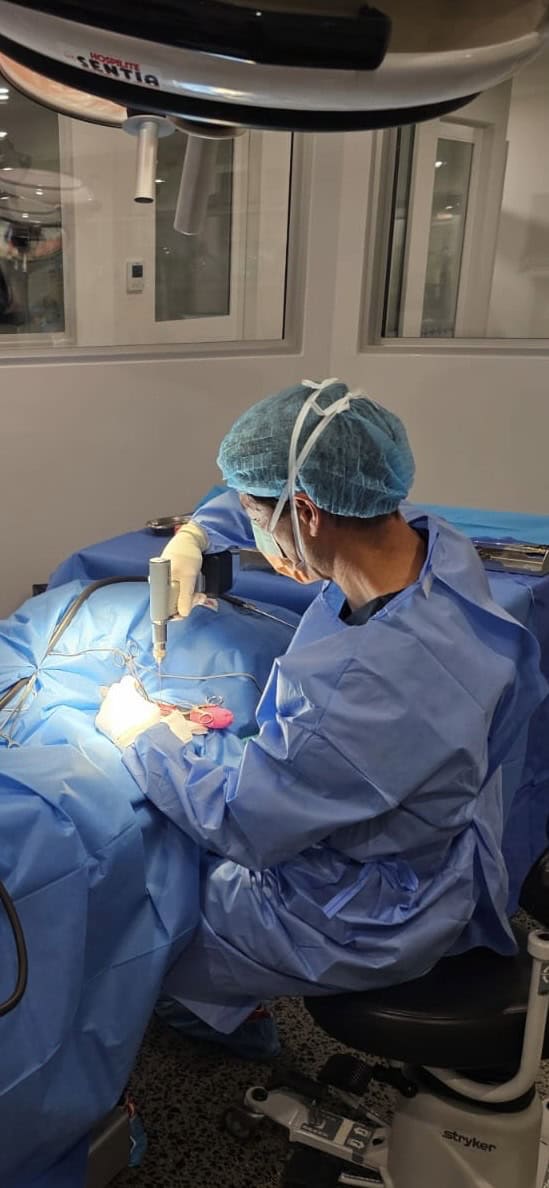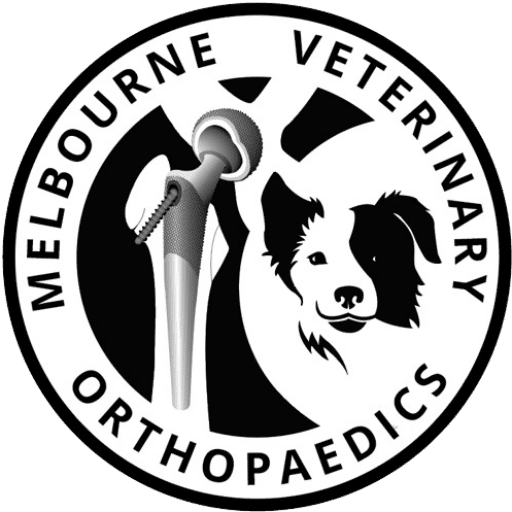FAQs
Is there difference between a veterinary surgeon and a surgeon?
Yes. Unfortunately for most pet owners, the term veterinary surgeon is confusing and likely misleading as it suggests all vets are surgeons ? This is not the case. Only about 3% of vets are specialist surgeons. All vets are veterinary surgeons but only a registered specialist in surgery can claim to be a surgeon. This distinction can confuse the general public.
Are there many specialists?
In human medicine, roughly half of doctors are general practitioners and half are specialists. In veterinary, roughly 90% are general practitioners and only 10% are specialists primarily due to demand and supply but there are more and more vets undertaking advanced training.
Are all specialist surgeons equal?
As in human medicine, gaining qualifications as a specialist allows vets to practice in an exclusive way seeing complex cases but it takes many years to become proficient in surgery and this means older surgeons tend to have more practical experience as you would expect. In general, vets who have undergone training in a busy US University teaching hospital under the supervision of several instructors, tend to have more confidence than vets who train under one or two mentors in an Australian private practice.
My local vet advertises they have expertise / offer advanced surgery: what does this mean?
Vets are legally able to perform any procedure as soon as they become a vet. The old adage used to be “ See one, Do one, Teach one”, meaning decades ago, the culture in the vet industry was to learn on your second case and then teach another vet what you just learned yourself. Vets tend to run small businesses and are financially incentivised to keep surgical cases within their clinic. Many practice owners learn to do complex surgical procedures without formal specialist training.
Should my pet have a pre-anaesthesia blood test before surgery?
There is limited benefit running routine blood tests on young healthy pets. A recent analysis looking for a trend between abnormal blood test results and major anaesthesia complications revealed minimal association. If your pet is older, currently ill, has a heart murmur or is in poor general health, performing a screening blood analysis is recommended.
What are the risks of anaesthesia?
General anaesthesia is safe and well tolerated in the majority of patients. Slow recovery can occur. Most smaller patients develop hypothermia which is due to heat loss under anaesthesia. Gastric reflux can result in a painful burning sensation in the throat. Regurgitation can result in aspiration pneumonia. Rarely do pets not recover from anaesthesia but this is always a remote risk.
Why pay extra for a Specialist Vet?
Specialist vets have passed a rigorous detailed examination process after years of focused training and study. They learn from other specialists who are older and wiser. Specialist vet must perform original research and publish articles to contribute to their chosen field. Specialist vets attend advanced surgery meetings and share experiences to educate peers. You typically pay extra for the services of a specialist to reduce the risk of errors and complications as they have the highest level of training and knowledge.
Are all vets equal?
No. Your local suburban practice will have vets who are up to date with preventative health care, skin and ear disease, dentistry, eye problems, behavioural problems, and perform basic surgery. Larger practices often have an older vet who performs the more advanced surgery. Specialists tend to work in referral hospitals with other specialists and an emergency service and do not do routine healthcare as you would expect in a human hospital.
Is it OK for my pet to have day surgery?
Although it is ideal to have every pet observed by a veterinary team overnight after surgery, this is costly and not always required nor practical. There has been a trend in the last ten years for routine surgery to be performed as a day surgery. This is acceptable as long as the anaesthesia and surgery are performed efficiently and the anaesthesia recovery process is not prolonged. These pets are cared for at home by their owners. It is important to ensure quality pain relief is provided.
What are the typical medications after surgery to address pain and anxiety?
Opioid injections are given in hospitals by the veterinary staff. Oral medications include: anti-inflammatory drugs (NSAIDs), gabapentin, trazadone and a transdermal fentanyl patch.
Can I reduce the cost of surgery but not compromise the care?
Yes to an extent. The single most important element in your pet’s care having advanced surgery is the knowledge and experience of the operating surgeon. The second most important factor is the anaesthesia delivery and monitoring. Overnight care is important and should be recommended if required on a case-by-case basis. You have control of this as well as pre-operative diagnostics such as blood tests, x-rays and choice of procedure / implants.
Is a Veterinary Surgeon the same as a Specialist Surgeon?
No. The term veterinary surgeon is misleading and implies a skill set in surgery. Ironically, many veterinary surgeons only perform desexing operations and dentals. Many owners assume all vets perform hip replacements and open chest surgery as they are called surgeons. Specialists undertake a residency training program under the direct supervision of a qualified group of specialists and are extensively examined to prove their knowledge.
Why should I consider selecting a Specialist to treat my pet?
Your family vet is skilled in most aspects of pet care and this will vary depending on their practice and personal advancement. You have a guarantee of a high level of expertise if you elect to engage a specialist veterinarian in managing and treating your pet. You can expect the highest level of care.
Is it too late to apply for Pet Insurance?
Yes. All pet insurance has an exclusion period to prevent owners applying for cover once a problem has been identified. These conditions are classified as pre-existing and will not be covered if you begin your policy after the diagnosis is made or even signs of the problem have been documented in a veterinary medical record.
What do I do after surgery to care for my pet?
Pets recover optimally in a familiar low stress quiet environment. You want them to rest and sleep. Typically vet clinics are noisy, unfamiliar and have unfamiliar smells overstimulating patients. It is ideal to have them observed and medicated in a vet hospital until it is safe to have them at home where home care begins. Remember it’s a “marathon not a sprint”, meaning most major operations, other than keyhole joint surgery, will require prolonged exercise restriction and rest.
Who decides the best person to operate on my pet?
Pet owners are in control of this decision. They can ask questions, gain advice and have consultations with any vet they choose until they are satisfied and confident. Pet owners are also entitled to have access to their pets medical record and any pathology reports and diagnostic imaging.
What happens if a problem develops after surgery?
Complications can and do occur for a range of reasons. Sometimes surgery is risky but necessary. Other times, a problem develops when it is not expected. Your first point of contact is the vet and nursing team where the service was provided. Call that business and ask questions. If you are concerned, make an appointment to return for a checkup. Many problems can be addressed with a satisfactory resolution.
Is there an anaesthesia risk with surgery?
Surgery is almost always performed under general anaesthesia which renders the pet immobile. These patients are vulnerable to fluid, blood and heat loss. Multi-parameter
monitoring is available to measure vital parameters and discover early warning signs of an anaesthesia problem. Sedation of pets before anaesthesia reduces anxiety and the dose of anaesthesia required which is safer. Experienced surgery staff who are efficient can reduce the overall anaesthesia duration which is also linked to patient safety.
What is the benefit of overnight care?
A small percentage of patients will become excessively excitable and painful the night of surgery. It is not always possible to predict which animal will react in this way. If your pet is at home and experiences this, it can be stressful and make you unsettled. Veterinary staff are accustomed to animal stress. Fast acting medications such as sedatives and injectable pain relief drugs can be given as needed to ensure all patients in hospital are comfortable.
What do I do if my pet is too active after surgery?
Almost all surgical procedures require limited stress on healing tissues for optimal recovery. Bone heals too but if the patient overuses the limb it can slow, delay or even limit healing. No client wants to pay for further revision surgery. Keeping animals contained after surgery can be challenging. Often the most practical and effective approach is to ensure pets are in a wire crate to limit movement and stop running and jumping.
What do I do if the pain after surgery seems too much?
Contact your vet immediately if you are worried about excessive pain. Both dogs and cats benefit from reduced post surgical pain. There are many drugs that are safe and effective which can be dispensed to give at home. Occasionally, your pet will require admission to a 24 hour hospital to provide increased care relative to what you had been providing at home.
Should my dog be walked after orthopaedic surgery?
Generally it is safe to allow loading of the affected limb which means standing after surgery and gentle controlled walks. Having your pet lift the affected limb off the ground and protect it may seem normal but it is preferred to have weight bearing on the limb to maintain muscle and joint health. Often a slow walk on a short lead encourages dogs to use the limb.
What are the ongoing costs after surgery?
Often the first recheck after a major operation is included and there is no additional cost. This would also typically include bandage and suture removal. Owners should expect to pay for additional unexpected medications, x-rays and any further anaesthesia and surgery. If a care package was agreed before surgery, all costs associated with the index surgery will be covered.
Should I worry about my pet using the affected limb after surgery?
If surgery has been performed with limited soft tissue dissection and secure well positioned implants, many pets will begin to use their limbs immediately or within a few days after surgery. This is normal and a sign that things are going well and as planned. Deterioration in limb use is often cause for concern and means something may be going wrong internally. Seek vet attention if this is the case to avoid early problems turning into major complications.
What should I do to choose a vet orthopaedic surgeon?
1. Verify a surgeon’s credentials
There are a few ways to verify a vet’s credentials before making an appointment. These details should be available online:
Victorian Veterinary Surgeons Board
Every vet must be certified by their state’s board. Some states have websites that allow consumers to verify an individual vet’s credentials. They list specialists in each respective discipline.
Specialist training
A vet who has had residency training in orthopaedics (e.g. hip replacement, TPLO, arthroscopy, fracture repair, spinal surgery) has learned to perform the surgery under the guidance of other highly experienced specialist surgeons.
Professional affiliations
Almost all qualified specialist surgeons are also members of professional organisations, such as the Australian and New Zealand College of Veterinary Scientists (ANZCVS) or the American College of Veterinary Surgeons (Diplomate ACVS).
2. Prioritise a surgeon’s experience
Research shows that choosing an experienced surgeon increases the likelihood of a successful operation such as a total hip replacement.


For example, one study published in the Journal of Veterinary Surgery out of the UK in 2011: Use of the cumulative summation technique to quantitatively assess a surgical learning curve: canine total hip replacement.
- Proficiency was reached after 44 hip replacement procedures
- Complications of surgery dropped off significantly after each surgeon ascended the learning curve gaining proficiency
- Surgeons who do more than 50 hip replacements each year have better overall outcomes
3. Ask questions
Pet owners are entitled to research a particular surgeon and ask the surgeon and the surgical nursing staff questions, such as:
How many times have you performed this specific surgery?
What are your complication rates?
Can I talk to other pet owners whose pet has had the same procedure recently?
4. Seek a second opinion
While not always necessary, it is okay to consult with another vet orthopedic surgeon and get a second opinion.
A second opinion is encouraged if the first vet:
- Lacks experience or qualifications
- Does not explain the procedure and recovery process to your satisfaction
- Does not fully answer your questions
Be sure to ask the second vet surgeon all the same questions about experience and qualifications as the first. Also, remember that the second vet’s opinion is not necessarily the best one.
Getting a second opinion or switching between practitioners is not unusual, and patients should not worry about hurting a vet’s feelings.
